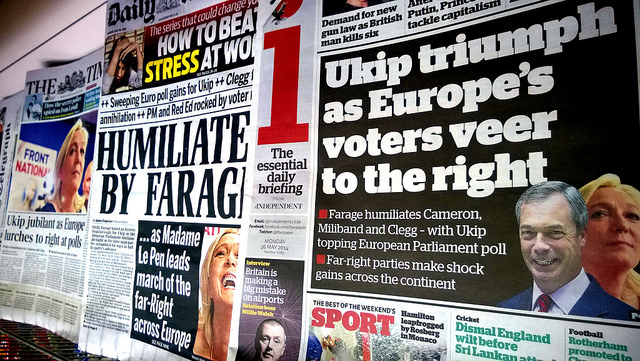
First published 20 January 2015
Is it possible to be objective and impartial when reporting on the European Union? The EU is rarely relevant in itself from a journalistic point of view, and the common EU interest is discussed only when it comes to showing good intentions in times of external crises, like a war, or a terrorist threat. For the rest, each country is a separate entity when it comes to EU news, and its priorities emerge from a merry-go-round of mutual influences between politicians, media and public opinion. Europe, from a media perspective, is a vulnerable object.
Not that the media doesn’t pay attention to the EU, on the contrary: the press room of the Brussels institutions is inhabited by a considerable number of correspondents whose output is massive and whose knowledge of the Euro-Leviathan is sometimes superior to that of officials themselves. But the news coming from there seem to have a lifeless, almost mineral quality, and the message, one way or another, does not reach the readers: people feel constantly misinformed about the EU and the idea of Brussels as an inexhaustible source of boring technicalities is very hard to overcome.
In reporting of the EU there are three main issues which are strictly intertwined: information, explanation and opinion. Ideally the last should be separated from the two firsts, but in the case of the EU there is a lingering unresolved question over the legitimacy of the institutions themselves, putting the reporter in the position of someone who had to announce a new national legislation made by a parliament whose functioning is obscure for most of its readers and then, at the same time, explain whether the entire process is legitimate or not. The very way the reporter copes with this task is a statement in itself.
For decades, journalists could rely on a shortcut, namely the received wisdom each country had on the EU, whether they were pro or against, what the EU meant for them and which role they wanted to play in it. The European project was born from the ashes of the II World War and through cooperation it was meant to put an end to centuries of conflict. What was not to like? Europe’s scope, its aim and even its name changed over time, but Europe and progress have, for decades, been almost synonymous, even on Fleet Street. But in the 1980s British Euroscepticism was on the rise and thanks to the journalism of Boris Johnson, EU-bashing entered the next level and became a genre in its own right. Based in Brussels as the Daily Telegraph correspondent from 1989 to 1995, Johnson wrote some of the most brilliantly overstated stories about the EU, inaugurating a style which soon be followed by the tabloids.
Five years after the beginning of the euro crisis, Euroscepticism has become a successful British export. In 2010 the break up of the eurozone was something to be avoided by all means and the big questions about the legitimacy of the measures implimented to prevent such a grim scenario were not asked. The EU had become a technocrat’s paradise; some Brussels correspondents admit that at the time neither the magnitude of the social crisis nor the possible democratic deficit in the measures taken received enough coverage from the media. At the same time a third problem was emerging, almost unnoticed: the cultural divide was widening, and Southern and Northern Europe started becoming irreconcilable enemies. Then, all of a sudden, the democratic issue upstaged everything else. The force of the images coming from Athens and, shortly after, from everywhere else in Europe; the youthful energy and comprehensible rage, caught the attention of the media, in particular TV stations who had struggled for so long to illustrate European affairs with anything other than men in suits leaving a dull building to get into a car.